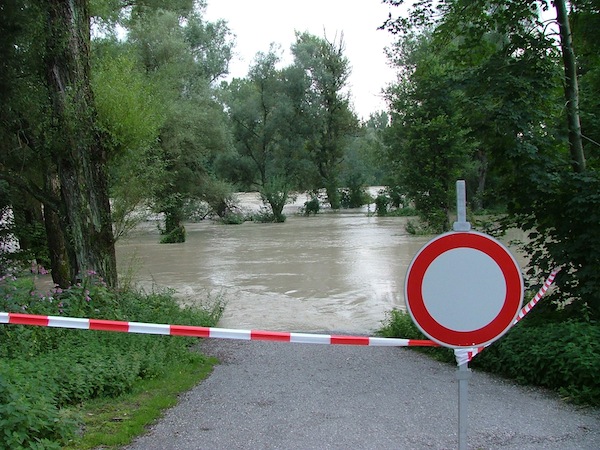During the recent snowstorms that affected Europe and North America, the summer floods that struck Australia were almost unnoticed except for those living in the inundated areas.
The authorities wisely advised people, particularly tourists on their summer holidays, to avoid the affected areas.
A friend of mine decided to ignore those warnings and take his family on a drive through those backroads despite multiple flood warnings and evacuations. In disregarding the risks, he’s not alone in Western society.
Living the risk-free life
In the Western world we believe we’ve engineered risk out of our society, that we can make investments without risk, that we can build houses in fire, flood or earthquake prone areas without risk, that we plan a holiday without the risk of snowstorms, volcanoes or accidents disrupting our trips.
As a society we believe the government will bail us because we’re good people and life, and fate, is always kind to good people.
When things do wrong, our mobile phones will work, our emergency services will come promptly and the government will quickly shelter and support us until the insurance company comes good on the damage.
Though it’s not just natural calamities where we believe this. It’s evident with people who quit their cubicles to find new enlightenment and riches as entrepreneurs.
Most of them misunderstand the risk-reward ratio that for every wildly successful new business founder, there are dozens who blow their money chasing the dream and hundreds of us that would have been better off working for a salary.
Finance markets and risk
The subprime crisis is another good example; millions were lulled into buying property on the promise that real estate values never fell and that their no cash down, defray your payments for years deal was bullet proof. These folk did not understand, or were equipped to understand, that real estate prices could fall.
During the subprime boom, the lenders thought they’d engineered out risk – Collateral Debt Obligations, default swaps and securitisation meant risk was a thing of the past – and they were proved wrong.
Indeed, the most frightening thing is our banks today believe they are still bullet proof and their profits and executive bonuses are risk free as governments will bail them out at the slightest hint of trouble. When the history of The Great Recession is written, and we are still in the early chapters, the guaranteeing of our “too big to fail” banks may prove to be the biggest mistake of our generation.
Because we believe there are no costs and little genuine threats to our lives, income or savings we don’t understand risks and therefore miscalculate them. If we think someone will be there to catch us, we’ll head up that flooded road, build that house in an earthquake zone or invest in that Ponzi scheme.
We have to understand there are risks and there are limits our governments and societies have in responding when things go wrong. If it’s clear we don’t understand those risks, then it’s probably best not to take them in the first place.
Endnote: My friend and his family made it back from the floods, although he ended up taking the family on four hour detour through some areas that sensible people would have avoided. Hopefully he’s learned a lesson about evaluating risks and won’t be taking his family into disaster areas again.
AB6N9E4DEW64

Leave a Reply